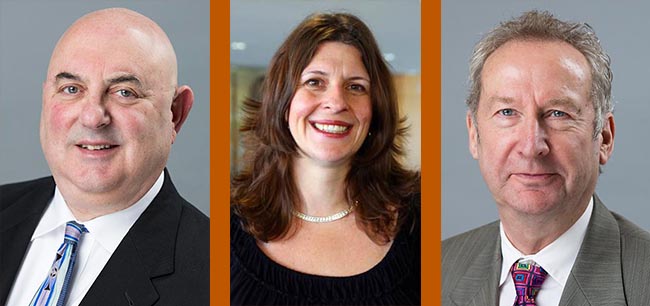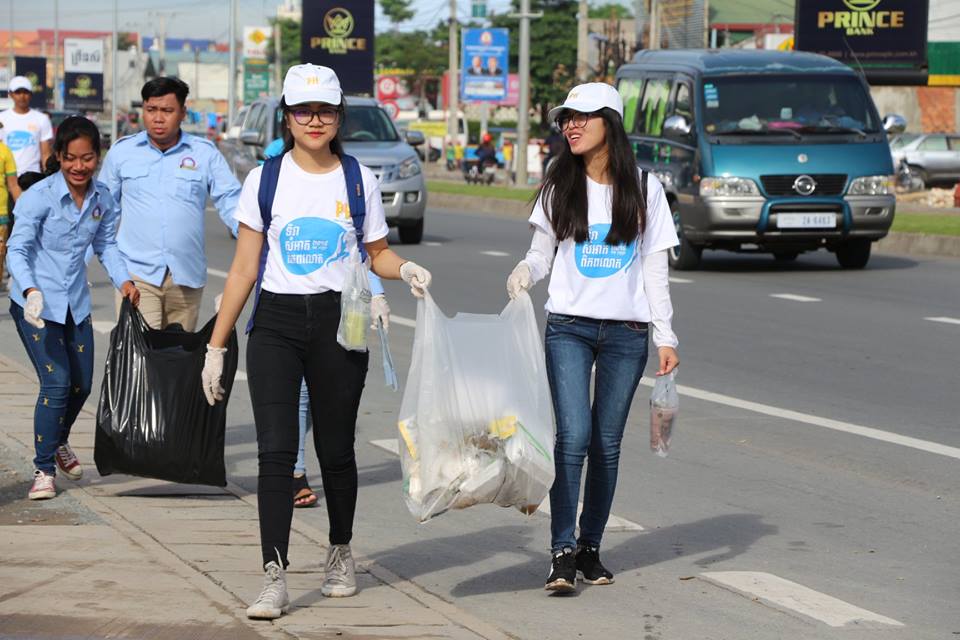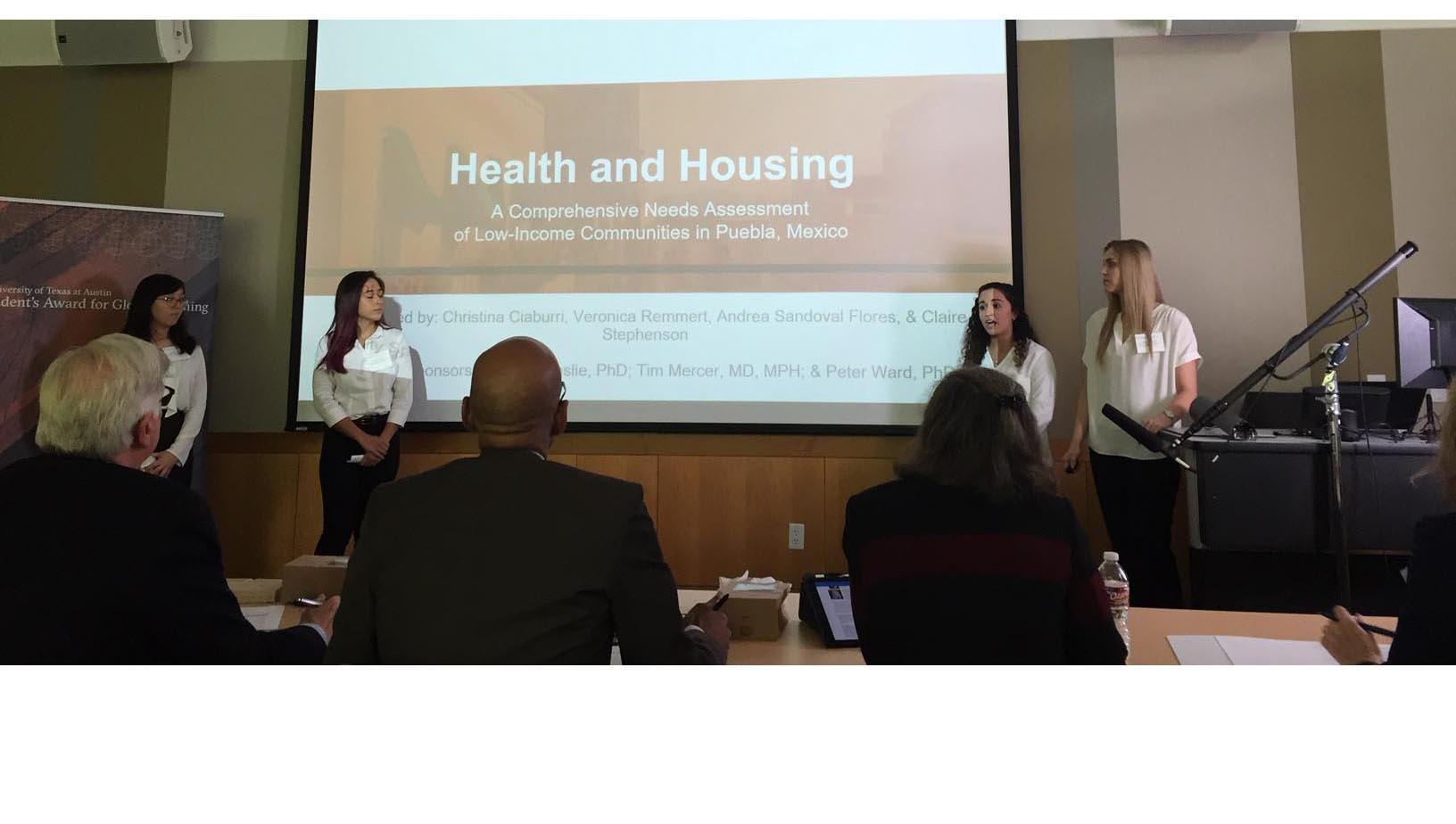
Three undergraduate research teams mentored by faculty from the LBJ School of Public Affairs at The University of Texas at Austin are among the inaugural seven recipients of the President’s Award for Global Learning. The President's Award provides up to $25,000 and fully funded travel to implement research, social impact and entrepreneurship projects in seven regions across the world during summer 2019.
"All of the UT students and faculty members who submitted proposals should be proud of their work — their innovative approaches to addressing critical problems are outstanding," said UT President Gregory L. Fenves in a university announcement. "This award program combines experiential learning with interdisciplinary engagement to give our students the opportunity to learn, practice and discover in international settings. I am thankful to the International Board of Advisors for providing the funding to make the President's Award for Global Learning possible."
How do you change the world? You put students in an international setting where they can learn, practice and discover #WhatStartsHere https://t.co/lh06lTV4HH
— Greg Fenves (@gregfenves) Oct. 19, 2018
The LBJ School's multidisciplinary faculty research projects include developing sustainable waste management in Cambodia, a health and housing needs assessment of low-income communities in Mexico and distributing low-cost sensors to measure air pollution in India.
David Eaton, LBJ professor and the Bess Harris Jones Centennial Professor in Natural Resource Policy Studies, will join Joshua Apte, faculty from the Cockrell School of Engineering, in mentoring a team of students from across colleges and schools at UT. This student-led team will use scalable, low-cost sensors to address knowledge gaps related to India's air quality.
"This project will document a substantial number of low-cost air particle monitors that can be used to develop a city-wide representation of poor air quality that private companies, nonprofit organizations and local governments can use to make decisions to prevent or abate pollution." —David Eaton
"Air pollution has become again a major public health risk, and many of the world's megacities with very poor air quality are in India," Eaton said. "This project will document a substantial number of low-cost air particle monitors that can be used to develop a city-wide representation of poor air quality that private companies, nonprofit organizations and local governments can use to make decisions to prevent or abate pollution."
UT undergraduates will work with faculty and students from an Indian university, as well as local citizens, to test and evaluate a network of air quality monitors, Eaton explained.
"Students will observe whether air quality information can improve air quality," he said.

Jenny Knowles Morrison, a research fellow at the LBJ School, is faculty mentor to a team of students with Lucy Atkinson, faculty from the Moody College of Communication, and Kasey Mariko Faust, faculty from the Cockrell School of Engineering. This project emphasizes entrepreneurship and impact investment to address waste management challenges in Phnom Penh, Cambodia.
"Waste management is a serious problem, especially for the most marginalized citizens," Morrison said. "Disempowered communities lack effective waste management services. The city of Phnom Penh is littered with piles of garbage and toxic smoke fills the air during the cover of night as landfills are burned off to accommodate more garbage. We are going straight to the end users, people living in informal settlements, to work with them to create localized and sustainable solutions."

With the support of Atkinson and Faust, the student team envisions creating both prototype solutions such as disposal bins and a public awareness campaign to spread the message of the importance of sustainable waste management practices across the country.
Peter Ward, the C.B. Smith Sr. Centennial #1 Chair in U.S.-Mexico Relations and a professor of public affairs and sociology, joins Ricardo Ainslie, faculty from the College of Education and Director of the Mexico Center of LLILAS, and Dr. Tim Mercer, director of global health at Dell Medical School, to form the faculty advisers of the Latin America region student team. Four juniors from different disciplinary backgrounds will work with a local foundation and university health program to conduct a comprehensive assessment of health needs, determinants and resources in underserved regions of Puebla, Mexico. The team’s focus is on housing and health, especially in relation to water and air quality.

"Poor and underserved communities in the state of Puebla, Mexico experience significant health disparities and poor outcomes," Ward explained. "This new and life-changing opportunity will promote undergraduate student engagement in path-breaking interdisciplinary global research. The research is student-led, and it is a personal privilege and pleasure to form part of the faculty team that will engage with and support these students as they move forward with their project in 2019. Students will have the unique experience of planning research, learning new skills, exercising leadership and team management—all in a different cultural context where sensitivity to local population needs and aspirations will be essential."
"Students will have the unique experience of planning research, learning new skills, exercising leadership and team management—all in a different cultural context where sensitivity to local population needs and aspirations will be essential." —Peter Ward
A total of 28 proposals were submitted from teams consisting of 98 students representing 10 colleges and 64 faculty members from 14 colleges. The program, a signature effort of the International Board of Advisors, included a comprehensive review process that drew on expertise from deans, associate deans and faculty members across 10 colleges and schools.
Fourteen finalist teams, two per region, were chosen to advance and pitch their projects to a distinguished panel of judges who recommended projects to President Fenves for the award.
Projects were judged on several criteria, including the expertise of the students and faculty members on each team, the interdisciplinary mix, commitment of the international partner and history of collaboration with UT, feasibility, sustainability, and contribution/applicability to the university and Texas. The judges panel included Dean Randy Diehl (College of Liberal Arts); Dean Sharon Wood (Cockrell School of Engineering); Dean Mark Smith (Graduate School); Teri Albrecht, interim executive director of the International Office; and Maria Arrellaga, executive director of global engagement.

